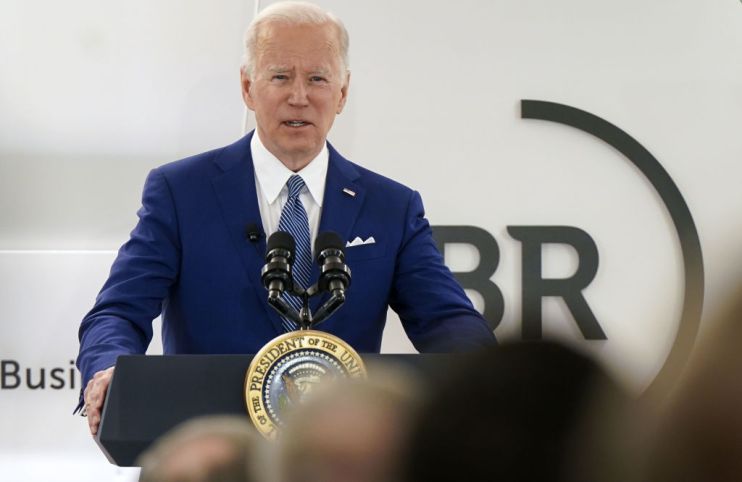US reaches deal with EU to boost LNG supplies

The US is putting the finishing touches on plans to supply the European Union (EU) with 15bn cubic metres of liquefied natural gas (LNG) by the end of the year.
US President Joe Biden is desperate to reduce the trading bloc’s reliance on Russian fossil fuels.
LNG deliveries from the US would go towards replacing 50bn cm of gas supplied by Russia on an annual basis.
According to the Financial Times, Biden and European Commission President Ursula von der Leyen will look to announce the arrangement on Friday morning.
Biden has arrived in Europe to meet with the EU and NATO allies following Russia’s invasion of Ukraine last month, hoping to push the West into ramping up sanctions on Russia following its invasion of Ukraine.
The EU has committed to cutting down Russian imports by two thirds over the course of 2022, but has so far avoided targeting Russian energy supplies.
For instance, it has stopped short of joining the US and UK with bans on Russian oil imports – with member states still split over the possible measure.
Germany opposed to energy sanctions despite White House pressure
Earlier this week German chancellor Olaf Scholz warned against an immediate ban on the country’s fossil fuels, saying such a move could trigger severe economic harm.
Speaking in the Bundestag, he said: “We will end this dependency – as soon as possible. But to do this from one day to the next would mean plunging our country and the whole of Europe into a recession.”
The country has sought to wean itself off Russian gas through new deals.
Earlier this month, it reached a long-term LNG agreement with Qatar and also announced plans to slow down the phasing out of coal.
Meanwhile, EU members are expected to commit to maintaining gas storage 90 per cent this year – and the bloc has also set out plans to import a 50bn cubic meters of LNG from non-Russian producers.
Officials briefed on the White House’s plan told the newspaper the overall amount of LNG supplied to the EU would depend on commercial contracts.
As it stands, much of US LNG output is already committed to Asia, where countries such as Korea and Japan already have long-term contracts established.
It is also unclear how much the EU can rely on other exporters, with both Bruegel and UBS warning that the EU will have to significantly reduce consumption demand to avoid supply shortages, if the continent cuts itself off completely from Russian gas.
With analysts forecasting that wholesale prices are effectively baked in to the market this winter, there is growing expectation consumers will suffer continued hikes in energy bills this year as Europe looks to divest from Kremlin-backed fossil fuels.
Another factor at play is capacity issues – Europe’s spare LNG import capacity is concentrated on the Iberian peninsula but Spain has poor pipeline connections to shift imported gas to northern Europe.
This means it could face difficulties converting LNG to usable gas at the necessary speed while also taking on more and more shipments.